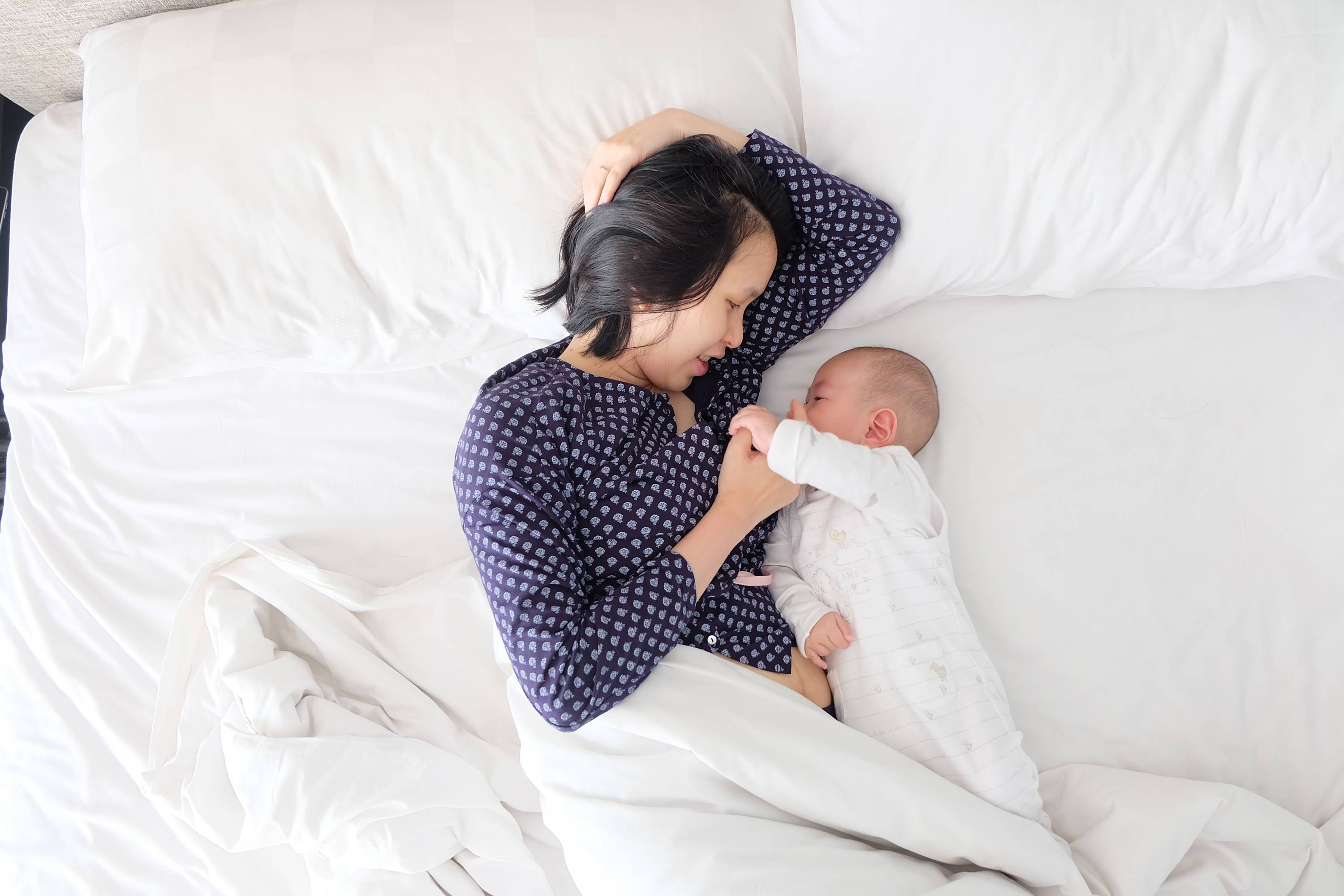
Having trouble sleeping or having a poor quality sleep is a symptom of anxiety and with recovery, these symptoms resolve. However, when baby’s wakefulness is the cause of interrupted or poor quality sleep, finding solutions can be challenging.
Sleep deprivation is known to be a risk-factor for postnatal depression/anxiety. Experiencing less than 6hrs unbroken sleep on a continuous basis begins to affect your mental health and can prevent recovery from postnatal depression. Even with good sleep hygiene practices many parents feel very limited in their options for improving sleep with a baby that is wakeful during the night – especially without the support of family or a partner if they are a sole parent. So other than asking family to come and help on a regular basis or taking turns with your partner so that you can occasionally get a full night’s rest, what else can you do?
- If baby is beyond the newborn stage (where a hungry tummy wakes them), get in touch with the Plunket helpline on 0800 933 922 to discuss reasons why your baby might be wakeful and discuss some strategies – for example, teething strategies
- If interrupted sleep is suddenly a new thing, it may be that baby is learning a new skill (such as rolling) and this sometimes interrupts their sleep as they master it. However, you should also rule out anything medical by seeing your GP if it doesn’t resolve – for instance, when baby’s have earache, this often gets worse at night or when you lay them down. You might also like to investigate whether colic might be occurring.
- Reflux and silent reflux babies often have difficulty with symptoms when they lay down to sleep. If you suspect your baby may be experiencing these symptoms, this is a really good website for identifying symptoms and putting in place some strategies
- Another great resource for families struggling with their baby’s sleep is the Plunket Family Centre. Not all areas have a family centre, but if your’s does – it’s worth booking yourself in and discussing the issues you’re experiencing – they’ll often offer to take care of baby while you have a nap too!
If you have done everything you can to rule out any cause and tried a number of strategies with the help of professionals and it’s still not really working, it may be a case of waiting it out. Some babies are just wakeful babies and this improves over time. So other than lowering your expectations (so they are more realistic) of yourself in other areas of domestic life, how can you wait for this season to pass without it affecting your mental wellbeing – especially if you don’t have family to help give you a break, or if you don’t have a partner or one that is willing to share the overnight care of baby?
If your financial budget can afford it
You could hire a night nanny to simply stay overnight a number of times a week to help with nightly feeds. Contact a local nanny agency to enquire.
Alternatively, as a cheaper option you could hire an Au Pair where you might negotiate hours at the advice of an agency such as Au Pair Link
If your financial budget can’t afford it
For a lot of families, hiring a nanny or even an au pair is not an option for them financially. However, there are affordable options where you request a certain number of hours childcare – even as many as 15 hrs/week in exchange for free board (accommodation and food). Usually, these are people who are having an overseas experience in New Zealand and are happy to find a situation like this so that they can explore the area and experience life with locals. You can request that they have childcare experience and seek references and police checks. However, it’s likely that they will either seek work outside of the hours you give them, or that they only stay for a short time – perhaps a month at most. You will need to make allowances for this and be prepared to look for a replacement after each au pair moves on until baby’s sleep settles. This can be disruptive to a household and sometimes people feel having someone else in the house is more stressful than lack of sleep or you mightn’t find you have the space for an au pair. You need to weigh that up and look at your options versus the impact sleep deprivation is having on your mental health.
Here are some places where you can find or post up an ad for a part-time (live-in) au pair in exchange for board and accommodation:
Some families decide to ask family to come and stay for a while to help until baby’s sleep improves, or they decide to move closer to family for better support.
We know that these don’t necessarily resolve all the issues around sleep deprivation as everyone’s circumstances are so different, however I hope that it may be some help to you as you consider all your options with an open mind.
Sleep deprivation is hard – take care of yourself and each other.
